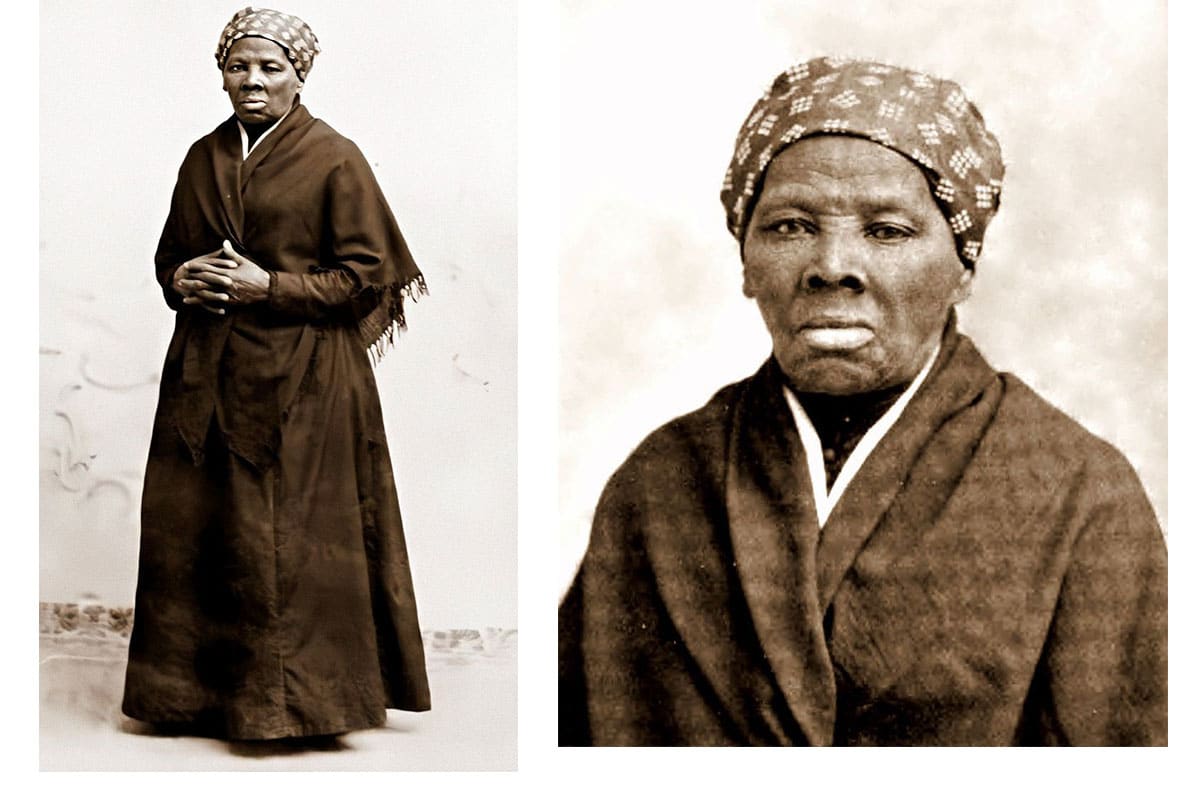
After only one week as president, Joe Biden has made it clear he's not here to waste anyone's time. In addition to signing a total of 15 Executive Orders and two agency actions, the president and his Treasury Department have made a decision to pick up where the Obama administration left off; beginning with an initiative to see American abolitionist and activist Harriet Tubman on the country’s $20 USD notes. While many of us certainly know her name, understanding who Harriet Tubman was and why recognition of her efforts is so monumental is required learning.
Who was Harriet Tubman?
Harriet Tubman, born Araminta Ross – later adopting the name Harriet after her mother – was born around 1820 on a plantation in Dorchester County, Maryland. One of nine children, by age five, Tubman was separated from her family and rented out by her owner as a nursemaid.
From a young age, Tubman's desire for justice was apparent. At just 12, she stepped between an escaped fugitive and an overseer; being struck in the head by a heavy weight in the process. Her severe injuries resulted in a lifetime of headaches, narcolepsy and hallucinations which she often claimed were religious visions.
Throughout her early life and adolescence, the line between freedom and slavery was continuously teetered. Her father Ben was freed from slavery at age 45, however, Harriet, her mother and her siblings were not afforded the same freedoms.
In 1844, Harriet married John Tubman, a free Black man, and changed her last name from Ross to Tubman. At that point in time, around half of the African American people on the eastern shore of Maryland were free and it was not uncommon for a family to include both free and enslaved people. Her marriage, however, was not a pleasant one and provoked her to escape to Pennsylvania – a free state – in 1849.
What was the Underground Railroad?
The earliest known mention of the Underground Railroad came in 1831, when enslaved man Tice Davids escaped from Kentucky into Ohio. Contrary to popular belief, the network was not conceptualised by Tubman herself, but rather a collective of black and white abolitionists. The passage was used as a form of shelter and aid for escaped enslaved people from the south. Tubman navigated the 90 mile trip to Philadelphia alone, and rather than being satisfied with her own freedom, Tubman returned to the south using the Underground Railroad to rescue her family and others living in slavery.
In 1850, however, her mission was momentarily compromised with the introduction of the Fugitive Slave Act allowed fugitive and freed workers in the north to be captured and enslaved. Despite this setback, Harriet continued her role as an Underground Railroad conductor, instead finding refuge for her passengers even further north in Canada. It’s believed Harriet personally led at least 70 enslaved people to freedom, including her elderly parents, and instructed many others on how to escape on their own.
I was the conductor of the Underground Railroad for eight years, and I can say what most conductors can’t say; I never ran my train off the track and I never lost a passenger.
Why is the move to feature Harriet Tubman on the $20 note so important?
In addition to her work in the Underground Railroad, Tubman found new ways to fight slavery through the guise of the Civil War. Working as a nurse, cook and laundress, she quickly became an armed scout and spy. Through this, she became the first woman to lead an armed expedition in the war, guiding the Combahee River Raid, which liberated more than 700 slaves in South Carolina.
Tubman was instrumental in leading hundreds of enslaved people to freedom, later dedicating her life to helping impoverished former slaves and the elderly. The redesign of the $20 note would replace former president and slaver Andrew Jackson with Tubman, sending a strong and well-overdue message to the American people that recognition of her work and efforts is more than just "pure political correctness".
As White House press secretary Jen Psaki shared, "It’s important that our money reflect the history and diversity of our country.”
President Biden’s Treasury Department aims to speed up the process of adding Harriet Tubman to the front of the $20 bill after the Trump administration halted the currency redesign, the White House press secretary said on Monday. https://t.co/FIn44Jaxzi
— The New York Times (@nytimes) January 25, 2021
Image:



